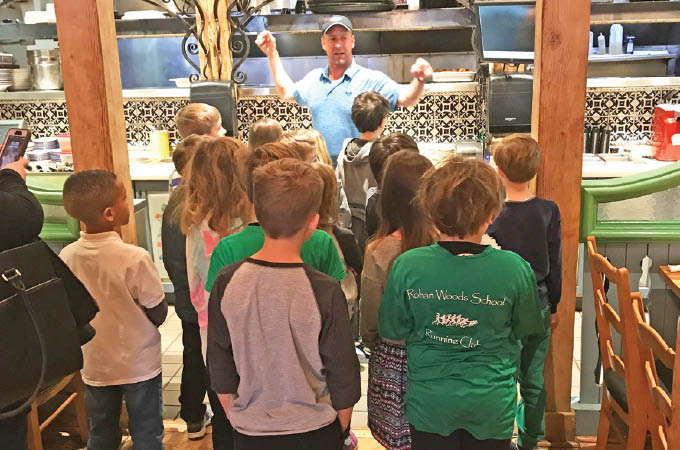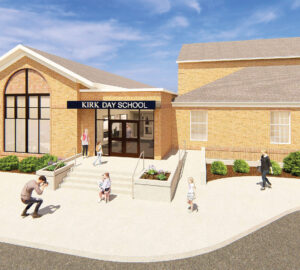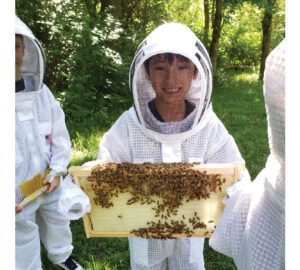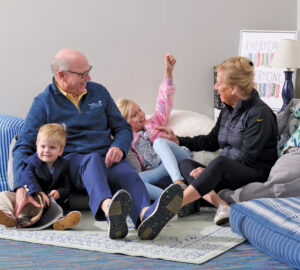We all listened to lectures and memorized facts and figures during our school days. But research shows that hands-on learning experiences and real world application are what stick with students most. That’s the idea behind education at Rohan Woods School. The independent elementary school in Warson Woods has integrated a project-based learning initiative called Project Approach into its curriculum, challenging students to collaboratively tackle problems and think critically.
“This method allows students to use creativity and innovation while applying fundamental academic skills,” says head of school Sam Templin-Page. She explains that the concept behind Project Approach does not place focus on the end product but instead helps students learn how to work through a process. While project-based learning often is found at the secondary and post-secondary levels, the skills associated with it need to be developed early, according to Templin-Page. “We are laying a strong foundation that prepares students to be lifelong learners,” she says. “They develop skills in key areas like critical thinking, collaboration and leadership.”
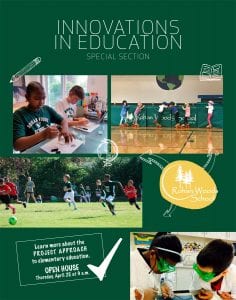 Project Approach is divided into four phases of planning and developing a project. The process is driven by students’ ideas and peer collaboration, and teachers are able to step out of the role of instructors and instead serve as guides and sounding boards, Templin-Page explains. “This a different methodology that gives them the opportunity to be facilitators without guiding the outcomes,” she says. “Our faculty has embraced it. Teachers and students both look forward to the time that is set aside to focus on project learning.”
Project Approach is divided into four phases of planning and developing a project. The process is driven by students’ ideas and peer collaboration, and teachers are able to step out of the role of instructors and instead serve as guides and sounding boards, Templin-Page explains. “This a different methodology that gives them the opportunity to be facilitators without guiding the outcomes,” she says. “Our faculty has embraced it. Teachers and students both look forward to the time that is set aside to focus on project learning.”
Students pick topics and conduct their own investigations, requiring them to apply skills and knowledge while also developing their interests. The process organically facilitates engagement and discovery, according to Templin-Page. “There is a lot of class discussion and brainstorming before moving on to the research phase,” she says. “It’s more than just doing a project, and students get to delve more deeply into what they want to learn about. It allows for deep thinking.” Parents are invited to watch students present their assignments once they are complete. The unique presentations, which range from PowerPoints to hands-on demonstrations, are chosen by each group.
First- and second-graders at Rohan Woods currently are learning about the food and hospitality industry. Templin-Page says preliminary planning for the projects has included guest speakers and a field trip to tour a working restaurant. Students are exploring topics like management, decor, branding and customer service, allowing for a much broader perspective. “Previously, their experience was simply going to a restaurant and eating, but now, they get a much more global view of food services,” Templin-Page notes.
Project Approach works alongside reading, writing and math lessons to create a holistic curriculum. “Traditional academic instruction is an important piece of education, but applying those skills in real life is completely different,” Templin-Page says. “Project Approach allows for practical experience and broadens the scope of student learning.” To show its classes in action, Rohan Woods is hosting an open house from 9 to 11 a.m. April 25.
Rohan Woods School is an independent elementary school for students age 2 to grade six. Its mission is to provide a challenging academic program that emphasizes personal responsibility and respect for all individuals. For more information, call 314.821.6270 or visit rohanwoods.org.
Cover design by Julie Streiler | Cover photos courtesy of Rohan Woods School
Pictured at top: First- and second-graders visit Schneithorst’s Restaurant as part of Project Approach.
Photo courtesy of Rohan Woods School
